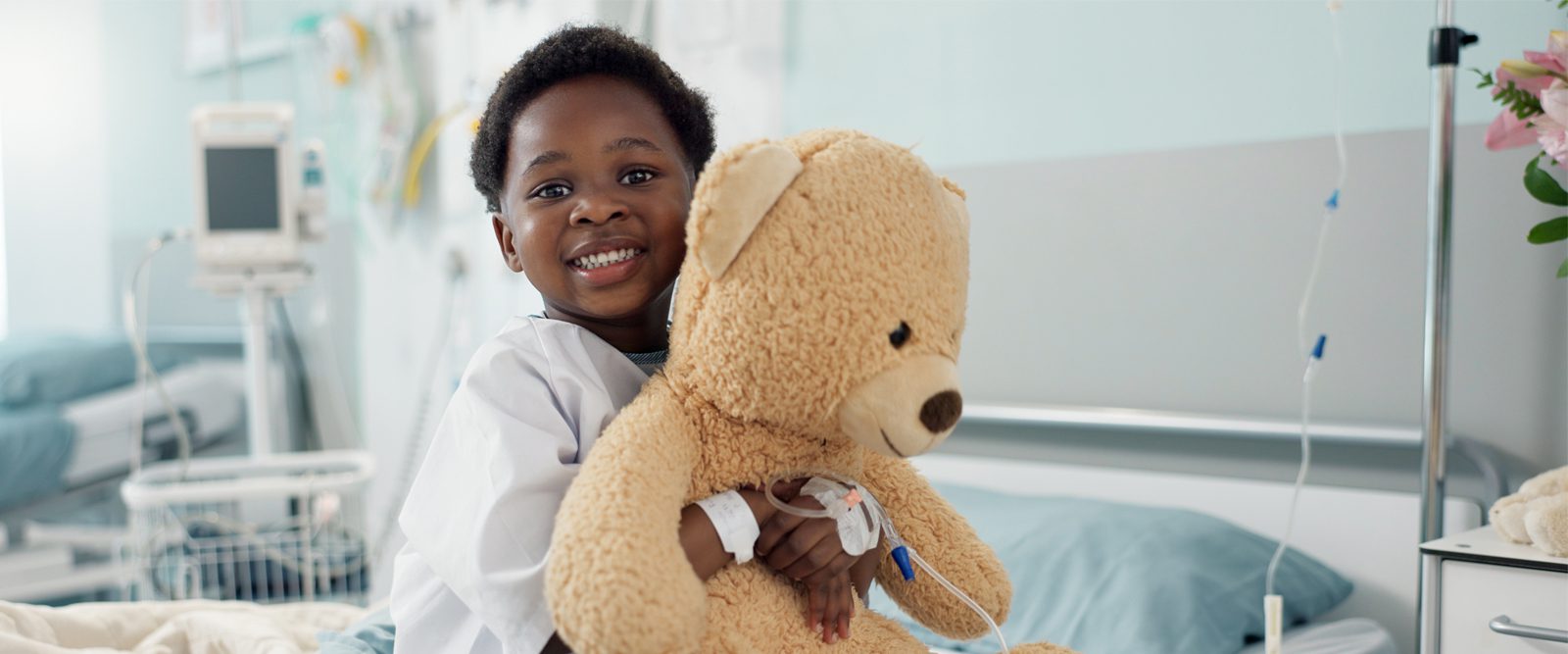6 Ways to Help Children Cope During a Hospital Stay
NewYork-Presbyterian child life specialists share their top tips for comforting younger patients.

For children who are hospitalized, the experience can feel especially scary, filled with unknowns in an unfamiliar place. During such an overwhelming time, there are some simple ways to bring a little comfort to young patients.
NewYork-Presbyterian child life specialists, clinicians who are specially trained to communicate with and support young patients during their hospital stay, shared with Health Matters six tips to make the hospital experience a little less daunting for children and their families.
“It is amazing to see what children are able to overcome with the help of some preparation, coping skills, and support,” says Julia Kellogg, a child life specialist at NewYork-Presbyterian Brooklyn Methodist Hospital.
1. Be open and honest.
“Start by asking your child what they know about going to the hospital,” says Allison Pzena, a child life specialist at NewYork-Presbyterian Komansky Children’s Hospital. “Answer questions honestly; children lose trust if they aren’t told the truth. They will surprise you with what they are already aware of.”
One way to talk about the hospital or a doctor’s visit is to use the five senses as a guide — how things may feel, smell, sound, taste (when applicable), and look. Also remind them that a loved one will be by their side. “Separation is a natural fear in children, and even the youngest infants are reassured to know their caregivers will be with them,” says Pzena.
2. Practice playing “doctor.”
Pretend play using medical toys and supplies give children the opportunity to learn about their tests and treatments. Try role playing different scenarios children may encounter, like sitting still for an injection or blood draw. “Medical play can be adapted for kids of all ages, abilities, and learning styles,” says child life specialist Janis Atty Meadow of NewYork-Presbyterian Queens. “For example, a child might take care of a teddy bear patient to prepare for their own care and practice coping skills.”
3. Offer choices.
Allowing children to participate in age-appropriate decisions gives them control in often uncertain and confusing circumstances. Even simple choices will make a difference. “It might mean which ear the doctor looks in first, whose lap they sit on, or what character sticker they want to wear,” says Kellogg. “Any choice helps give them a little more control in the hospital environment.”
4. Create a calm environment.
A hospital room can be overstimulating, so try adjusting the temperature, lighting, smell, or sound with the help of staff. “A calm environment with familiar things like blankets, a sound machine, or toys can signal to the child that they are safe,” says child life specialist Chesney Martello of NewYork-Presbyterian Lower Manhattan Hospital.
5. Bring items that remind them of home.
Comfort objects help soothe an anxious child when they are going to the hospital. “Encourage your child to help pack for their stay,” says Pzena. “Bringing a few personal items, such as a cherished blanket or stuffed animal, can help kids feel more relaxed.”
6. Break out old-school toys.
While a TV or iPad are go-to ways to pass the time, even screens can become boring for a child in the hospital. “Favorite toys from a parent or caregiver’s childhood spark curiosity and exploration,” says Martello. “A lot of kids have never seen a View-Master or Water Ring Toss.”
Other fun and tactile ideas include slime, silly putty, fidget toys, and magic wands. Bubbles do double duty by helping children regulate their breathing when they are nervous. Arts and crafts are also great outlets to let children express themselves when they may not have the words to explain how they feel.
The Best Part of My Job
NewYork-Presbyterian’s child life specialists share what they love most about their roles supporting families during a hospital stay.

Child Life specialist Irene Pagliari
“Providing the family and patient with fun, educational activities that teach them what is happening while also normalizing the experience of coming to a hospital.” — Kaitlyn Curci, NewYork-Presbyterian Brooklyn Methodist Hospital
“Working with children to face something they are scared of, and seeing them feel proud of what they overcame, brings me joy.” — Courtney Czepiga, NewYork-Presbyterian Brooklyn Methodist Hospital
“Seeing a patient overcome something they were afraid of — whether it is getting another needle, going for surgery or advocating for themselves. Nothing is more rewarding!” — Julia Kellogg, NewYork-Presbyterian Brooklyn Methodist Hospital
“Collaborating! Children and families have a wealth of knowledge, and I love facilitating conversations that value their expertise.” — Chesney Martello, NewYork-Presbyterian Lower Manhattan Hospital
“Empowering pediatric patients and families to realize their own strengths.” — Janis Atty Meadow, NewYork-Presbyterian Queens
“Working with children and giving them the tools to understand the medical world and cope with an illness.” — Irene Pagliari, NewYork-Presbyterian Westchester
“Whether it’s helping a scared child walk into an operating room or say their goodbyes to their mom or dad, I take pride in the fact that I am able to make these potentially frightening experiences more manageable.” — Allison Pzena, NewYork-Presbyterian Komansky Children’s Hospital
“Having the opportunity to empower children and families and show them how resilient they can be in difficult moments.” — Gaby Stern, NewYork-Presbyterian Brooklyn Methodist Hospital
